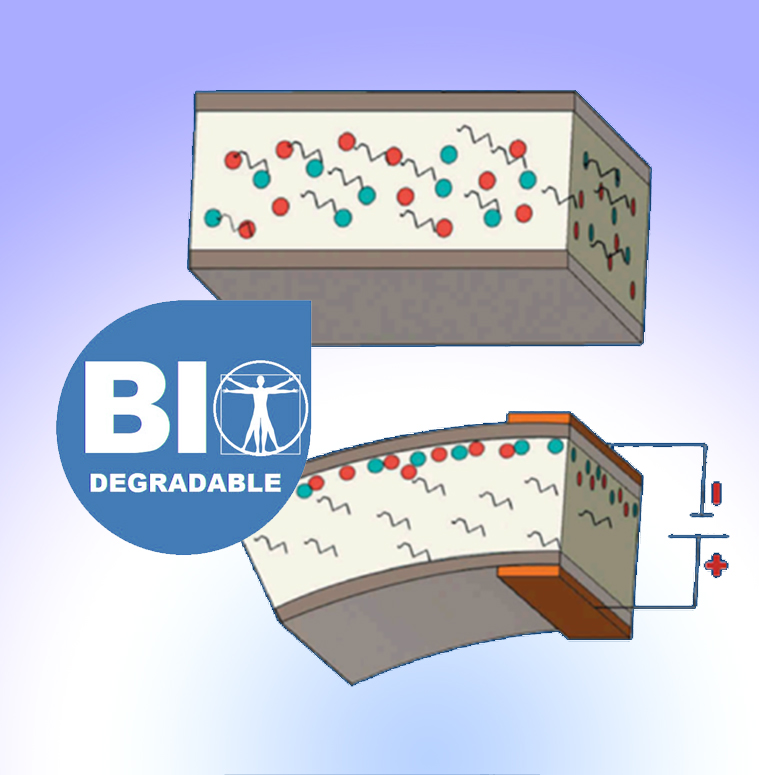MSc thesis project proposal
Biodegradable mechanical actuators based on ionic polymer metal composite
The development of organ-on-chip devices, which allow tissues to be cultured under conditions as similar as possible to their native environment in vivo, involves the mechanical stimulation of cells, in particular when it is desired to reproduce organs such as the heart, the intestines or the lungs. Different strategies are possible to mechanically stimulate cells. The most common is to apply a strain on the membrane on which the cells are grown, using pneumatic actuation. However, such a pneumatic actuation can be a source of technical challenges, since it requires the use of multiple tubes which emerge from the setup and are connected to bulky pumps, making the handling of the organ-on-chip device not entirely convenient. These drawbacks are interfering with the adoption of OoC technology by the pharmaceutical industry.
In the ECTM group of TU Delft, we are currently working on a new organ-on-chip mechanical stimulation approach, based on electrical instead of pneumatical actuation. For this purpose, we are investigating ionic polymer metal composites (IPMC).
In this Master project, the student will develop new mechanical actuators using the ionic polymer metal composite approach and made entirely of biodegradable materials. The actuators will then be integrated into an organ-on-chip platform and their electrical and mechanical behavior will be characterized through measurements and simulations.
Why a biodegradable actuator for organ-on-chip? Devices made of biodegradable materials are designed to work for a defined period of time, and then are degraded naturally by the body without arm. They are completely degradable, including the electronics. In the context of organ-on-chip platform, biodegradable materials are of great interest, because the cells can grow on the porous biodegradable scaffold, they can gradually colonize all the space, while the scaffold gradually disappears, until finally obtaining a tissue entirely made up of cells. The fact that the scaffold can also provide mechanical actuation allows cells to grow in a context very similar to that observed in vivo.
The ultimate goal is to create cell models that are closer to real organs and more relevant for pharmaceutical and clinical studies.
Assignment
This experimental project will involve:
- An extensive review of the state-of-the-art in polymeric electro-mechanical actuators;
- Conception of microfabrication method and material choice;
- Fabrication of biodegradable actuator;
- Mechanical and electrical characterization;
- Functional testing and implementation in in vitro setting;
- Reporting.
Duration: 9 to 12 months
Location: TU Delft, ECTM
Collaboration with LUMC (Leiden)
Requirements
You are an ambitious hands-on master student from Microelectronics, Biomedical Engineering or Applied Sciences. Experience with microfabrication and soft lithography is preferred. You have good communication skills in English, you are independent and also a team player.
If you are eager to work in a motivating atmosphere with highly skilled colleagues, then send us your CV!
Contact
dr. Clementine Boutry
Electronic Components, Technology and Materials Group
Department of Microelectronics
Last modified: 2022-04-13
